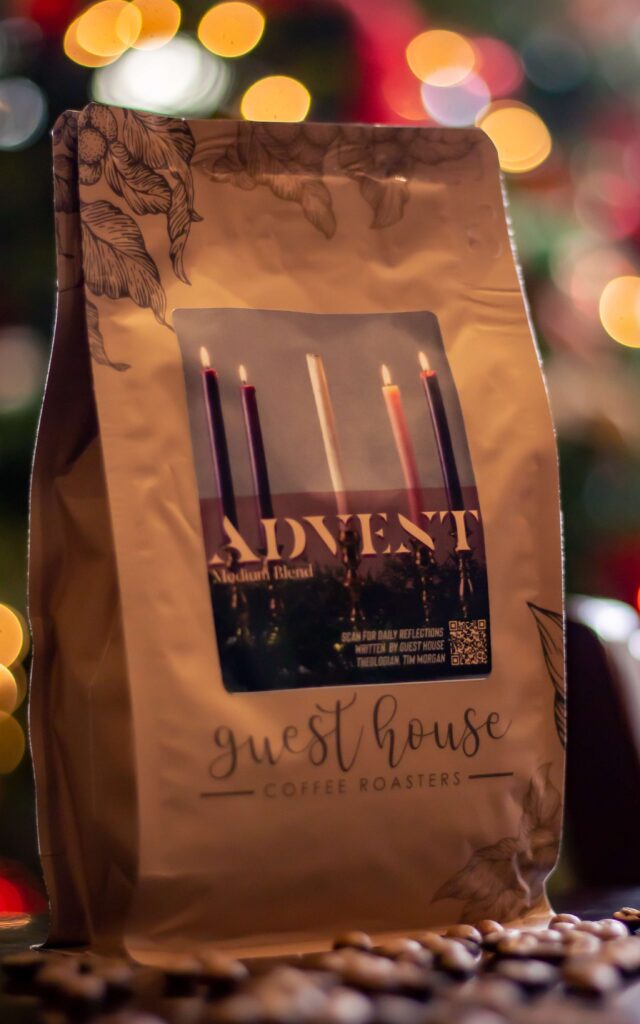“Make them bear their guilt, O God; let them fall by their own counsels” (Psalm 5:10).
“And the strong shall become tinder, and his work a spark, and both of them shall burn together, with none to quench them” (Isaiah 1:31).
The coming of Jesus is God’s event, not ours. That’s pretty well spelled out for us: Jesus is born of a virgin (“from the Holy Spirit,” Matthew 1:18, 20; compare Luke 1:35), brought forth from a genealogy the continuity of which depends step by step upon God’s action, and divinely preserved from the machinations of Herod—and the list goes on. This is especially transparent in Matthew, where the evangelist tells us time and time again that the events surrounding Jesus’s birth happened “to fulfill what the Lord had spoken by the prophet” (Matthew 2:15). The significance of these events is decided by God, not by us. The angel said to Joseph, “She [Mary] will bear a son, and you shall call his name Jesus, for he will save his people from their sins” (Matthew 1:21). Even Jesus’ name (yeshúa, a variant of yehoshúa, which means “YHWH [the Lord] is salvation”) testifies that this thing that’s happening is God’s thing, that it’s happening because God’s doing something. While we don’t get to decide what Jesus’ birth means, our own meaning is decided by it. While it’s not up to us, it is for us.
In Jesus’ coming, God is foremost saving us. He is drawing us up from the mire to which we’ve stooped to the high dignity for which we were intended. God is restoring peace to the earth, establishing his Kingdom, “the city of righteousness, the faithful city” (Isaiah 1:26). He’s claiming his people, calling them into “his own kingdom and glory” (1 Thessalonians 2:12). In Jesus, God opens the way out of the complex web of our constant vying-for-position-by-any-means. He invites us into a new way of life, into a way of relating with one another that’s entirely embedded within our relationship to God in Christ (life “in the Spirit,” Romans 8:1-11).
However, in Jesus’ coming, God is also judging us. We struggle with this part. Entailed in God’s gracious act of salvation is a judgment without reserve upon our way of life, down to the notions of ourselves which we hold so near to our hearts (the many ways we tend to answer the question, “Who am I?”). Indeed, “It is a fearful thing to fall into the hands of the living God” (Hebrews 10:31). However, this isn’t because God delights in the punishment of the wicked, sadistically chomping at the bits, waiting for us to stray so that he can cause us pain (see John 3:17). Rather, God’s judgment is the approach of his promised future. It’s the dark night in which lightning strikes to illumine the landscape. It’s fearful to be in God’s hands not because they aren’t good hands to be in, but because he intends to reshape everything we’re afraid of losing (2 Corinthians 5:17).
Today, I’d ask that you reflect upon the fact that, just as you are God’s, so too the Church is God’s. The judgment which God pronounces upon our ways of life, he pronounces upon our ways of living together. The Church is our “together-ed” getting-in-on what God is doing in the birth of Jesus (God being the “together-er”). When the poisons of duplicity and positioning infiltrate our ways of living in the Church, then God’s word of judgment stands against us.
Further Reading: Psalm 5; Isaiah 1:21-31; 1 Thessalonians 2:1-12; Luke 20:9-18
Written by Guest House Theologian, Tim Morgan. These reflections are a complimentary addition to our Advent Blend Coffee Bags. Scan the QR code each day to read the most recent reflection.

More Advent reflections can be found here.